On September 5, 2017, Fordham University will host “a conversation” between James Martin, S.J., and Dr. Patrick Hornbeck. A similar event with Martin and Hornbeck took place at Fordham in 2014. Hornbeck is currently Associate Professor and Chair of Fordham’s Department of Theology. In 2015, he married his same-sex partner at St. Bartholomew’s Episcopal Church in New York City.
During the 2014 event, Martin discussed “the law of gradualism” at it relates to possible Catholic pastoral practices with LGBT men and women. He explained:
John the Baptist’s model is essentially conversion first and then Communion. You repent, you convert, and then you are welcomed into the community…Jesus’ daring insight was to have Communion first and then conversion.
Martin endorses what he sees as this gradualist approach, he added:
…bring them in, welcome them, gradualism, its okay, we accompany them and then move them along.
But then how would the Catholic Church reconcile this new welcoming attitude which includes Communion while still prohibiting homosexual activity and sex-sex relationships? Martin said:
…of course doctrine develops and obviously we can change our teaching on these things.
Hornbeck shared some of his own experiences, he said:
One of the things I was taught, I’ve been with Jesuits since high school, there is this Ignatian pedagogical paradigm, a teaching paradigm, that starts out with where is the student. And the goal is not to say: “Oh bad student, look at the nasty place you are in. Let me try to help you out of it.” But let me understand who you are in this place, let me see God in you in that place.
During a 2017 address titled “Pope Francis –A Student of St Ignatius,” regarding “the search for God in all things,” Hornbeck said:
Unlike some of the people whom Francis criticizes for having a more legalistic or rigorist bent, he is willing to ask the question – How exactly is it that God is working in the lives of those whose marriages have been broken or in the lives of same-sex couples and the families that they create? A stricter interpretation of Canon Law or of sexual ethics might urge us to the conclusion that nothing good can come out of these relationships – these divorced and remarried relationships, these same-sex relationships, something along the lines of no good fruit from the poisoned tree, but Francis, while not undertaking any formal doctrinal changes has urged the clergy to make allowances in pastoral practice for those whom he says live in quote/unquote “irregular situations.”
Hornbeck added: “How is Christ working in that space?”
In a August 24, 2017 interview with the pro-gay San Francisco periodical “The Bay Area Reporter,” Martin stated:
Most of the vicious stuff has been from the far right. I think there are five reasons for this: 1) fear of the LGBT person as the ‘other,’ 2) hatred of LGBT people, 3) visceral disgust at same-sex relations, 4) theological opposition to welcoming LGBT people because that means church teaching might be changed, which is terrifying to them, and 5) most importantly is discomfort with their own sexuality, especially because a few of the critics from the far right are self-professed former gays.
“The Bay Area Reporter” is the oldest continually published LGBT newspaper in the US. The paper covers both national and local stories of interest to the LGBT community; a variety of companies advertise in the paper: from hospitals and high-end hotels to gay sex clubs and men offering “nude erotic massage.” The author of the James Martin article is Brian Bromberger, an ordained Deacon of the Archdiocese of San Francisco; his articles and reviews for “The Reporter” are often very sexually explicit; see here for examples.
In the interview with Bromberger, Martin also stated:
One of my closest friends is a gay man who left a religious order and has been with his partner for 20 years. Mark has cared for his partner, who has a serious illness. The question to the church and bishops is: What can they learn about love from Mark and his partner?
“One of Martin’s contentions is that few bishops know LGBTs. When asked if their priests coming out to them could facilitate this dialogue, Martin replied, ‘Yes, I do.'”
According to Bromberger, Martin “said that he prefers not to make public his own sexuality.”
In a 2013 interview, Martin said:
The idea that someone can come out and be honest and transparent and open about the way God created them, I think is terrific. I think it’s something the Catholic Church can support.
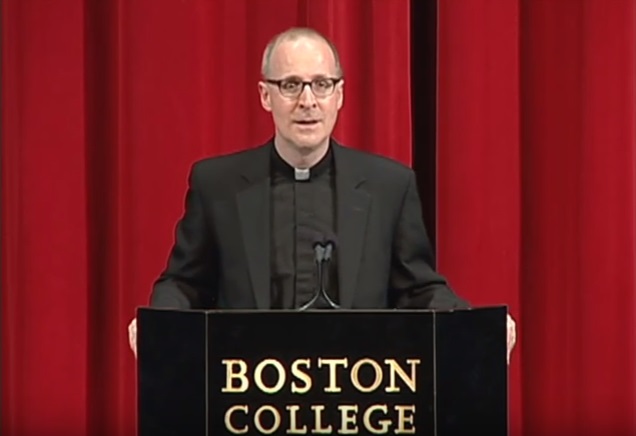
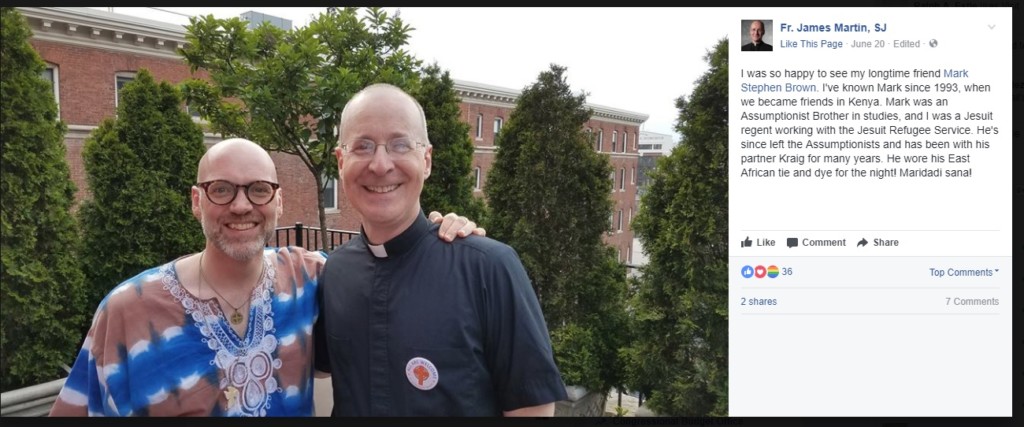

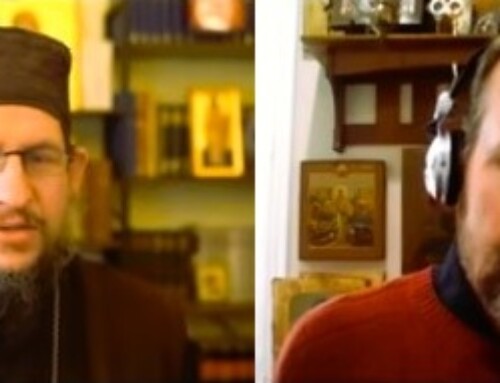
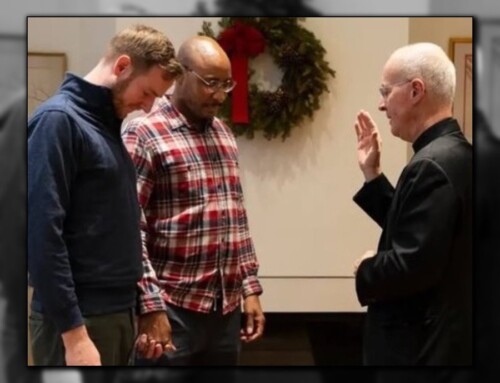
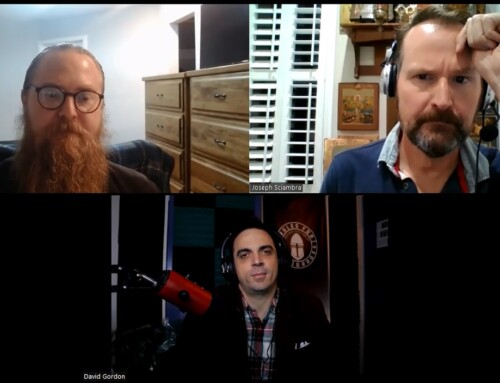
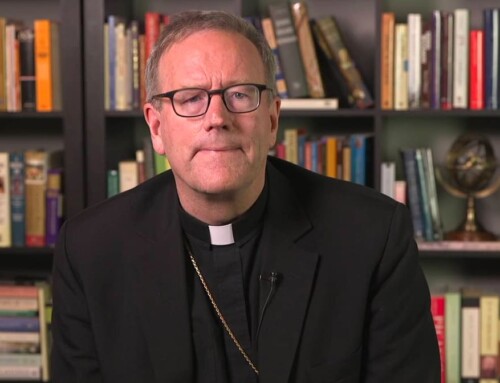
Martin’s rhetoric is just such an insult to our Lord. As if God has to compromise and change for us. NO! His ways are perfect. They are pure. They are holy. They are true. They are unchanging–the same yesterday, today, forever. God does NOT make mistakes. The demons are those who infuse pain and suffering through sin and disobedience. Martin speaks of loving all, but he acts hateful and hostile to the “far-right”–to the point that his words regarding them drip with malice. When the far right come to him, he doesn’t gently instruct or try and draw them into conversation–he ignores them and then BLOCKS THEM. Is this pastoral care? If he believes they are lost or falling, why wouldn’t he reach out to them as he so freely and frequently reaches out to the gay population? In his statement above, Martin judges those who will not defy God’s holy precepts. He judges us and says we have our own sexuality issues, (This would be funny if it wasn’t such a terrible, sinful thing for him to say) and he even goes so far as to criticize men who are former gays! Is this the kind of love a shepherd should have for former gay men/women? He fully admits that there are those who are former gays, so why isn’t he REJOICING WITH THEM–WHY ISN’T HE REJOICING IN THEIR CONVERSION AND FREEDOM FROM SIN? And how can they be “former” if they were “born that way?” Martin’s actions and rhetoric is double-minded. This is NOT of God. Several Sundays ago the gospel was about the “cockle” (weeds) that were sown into the wheat–and we were taught that the weed looks so much like the wheat that it’s hard to tell which is which. But God didn’t leave us without a way to know. He told us we would know them by their fruit. Fr. James Martin’s fruit right now is heretical teachings and to be surrounded by those who are embracing him and his teachings because they are actively engaging in a sin that will cost them their souls. He is doing NOTHING to show them the true path to holiness, which is TO FULLY SURRENDER TO GOD–and not just the things we agree with or that are easy. Jesus would NEVER condone a gay lifestyle–His example was GO AND SIN NO MORE. Jesus would NEVER hate those who are sticking their necks out to speak the truth and who remain steadfast in their honoring and love of God FIRST, and adherence to holy HIs precepts. Jesus would NEVER condone ANY sin, and many times He warned about the consequence of those who will not rid their lives of sin. The GREATEST COMPASSION AND LOVE WE CAN EVER GIVE IS TO LEAD SOULS TO CONVERSION. The rest is all just fleeting. Eternity is FOREVER.
Thank you for truth. God Bless.
Disgusting.
St. Ignatius Loyola must be weeping at the liberal bias of his Religious Siociety of Jesus. In past centuries, the Jesuits
were the great Catholic Missionaries, and the great educators and leaders in the Catholic Faith. Now they are infected with liberalism. They are no longer the intellectual teachers of Catholic Doctrine. This infection of liberalism is so world wide that it will eventually either cause a schism or the loss of the True Faith by those who are easily lead astray.
Our lady of Fatima said that more souls go to hell for sins of impurity than any other reason
Fr. Martin is slowly trying to destroy the Catholic Church’s teaching regarding homosexuality and same-sex relationships out of a false sense of compassion and justice. There is no good outcome from the homosexual life-style and same-sex unions. There is only a lie, that fulfillment can be found in something that is against natural-law. The reason being is that there is no complementarity of the sexes. God in his wisdom and love created man and woman to be life-bearers in his image and likeness. Only man and woman can share in that creative generativity of God producing new life in imitation of the love between the members of the Trinity. As a priest, I have accompanied a person on a journey back to God and to the Church after he succumbed to the idea that same-sex union would bring him the fulfillment and peace that he had desired ever since he lost his biological family due to a tragic accident. What this individual experienced was not fulfillment and peace. On the contrary, he experienced alienation and abuse at the hands of his “partner” as well as mental turmoil that led to substance abuse to deal with the pain he experienced on a daily basis. It was ultimately substance abuse that took the life of this once very gifted, talented and loving human being when he lived according to the teachings of Christ and his Church. The teachings of the Church are here to help us achieve holiness and to protect us from the destructive forces of Satan that seeks to destroy all that is Good and Holy. If you are reading this post, please feel free to share it with all of your loved ones who are confused about their sexual identity so that they do not end up like Keith. Please pray for the conversion and salvation of Fr. Martin’s soul and all of those who adhere to the secular world’s attitude toward same-sex unions. I call it union because it is a misnomer to equate it with marriage between man and woman. Please pray the rosary in reparation for the sins against the Sacred Heart of Jesus and the Immaculate Heart of Mary that this sin inflicts upon their Sacred Hearts.
Martin says: “Unlike some of the people whom Francis criticizes for having a more legalistic or rigorist bent, he is willing to ask the question – How exactly is it that God is working in the lives of those whose marriages have been broken or in the lives of same-sex couples and the families that they create?”
Here’s how Christ is working in those lives – by constantly calling them to repentance. If this is rigorist then Martin is accusing Christ of rigorism because after all, the same Christ who said “Neither do I condemn you” has this as the final word on the matter: Go and sin no more.
The question is not so much how is Christ working in these people and situation but who are these people following? Are they following Christ or are they following the serpent?
Looking through scripture, it is clear that they are following the serpent, the prince of this world, the devil.
But yes, Christ is constantly following them, urging them to turn back and repent.
In the meantime, Martin lends his mouth to the evil one that says “what you are doing is not sin so keep on doing it”.
The hapless sinners who follow him will have less to worry about than the advocate of the devil who teaches others to follow him.
Thank you, Joe.
I exited from the lifestyle 6 months ago. I have repented of my 50 plus years of unrestrained hedonism with the homosexual lifestyle. How I am still alive is a mystery that only a merciful God can answer.
I have chosen, with the grace of God, to live a chaste life. I am now devoted to the Holy Mass, the Sacrament of Penance and trying to be the person that God intended me to be.
There are priests who are just the opposite of this person with the name of Martin. Thank God for them.
Bless you, for your example for people like me.